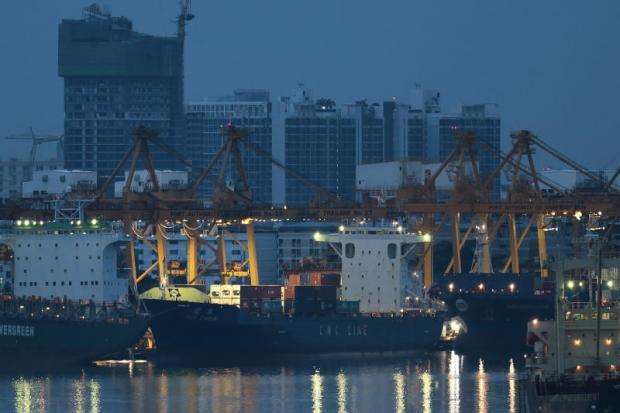China-ASEAN Monitor

File Photo
Economy, Investment and Trade
Thailand’s economy minimally impacted by US-China Trade War
(13 August 2018) The present trade tensions between the US and China are not expected to have a significant overall impact on Thailand’s GDP growth according to an unnamed source at Thailand’s Finance ministry. The source was quoted as saying that the net effect on Thai economic growth would shave off a mere 0.03 percent of a forecasted GDP growth of 4.5 percent in 2018. While Thailand’s exports to China are expected to be hit hard, with a negative impact of 0.11 percent to the GDP forecast, it could be offset by a positive growth of 0.08 percent in the event Chinese investors choose Thailand as a production hub for exports to the U.S. This is based on the rationale that Chinese investors will shift production facilities to places in South-East Asia like Thailand in order to avoid the U.S tariffs. Another possible positive outcome could see Thai farm products, such as animal feed and pork, substituting for Chinese products as exports to the U.S.
Read more>>
China to impose anti-dumping duty on US, EU and Singapore rubber
(10 August 2018) China plans to impose anti-dumping duties starting from 23.1 percent to 75.5 percent on halogenated butyl rubber from the U.S, EU and Singapore starting from 20 August. The 75.5 percent tariff will be imposed on U.S. rubber produced by Exxon Mobil and other U.S. companies. The tariff rate of 23.1 percent will be levied on Arlanxeo Singapore, while other Singaporean firms would be hit with a higher rate of 45.2 percent. In April of this year, China had already imposed a temporary anti-dumping measure on halogenated butyl rubber, which was sold at a discount to appropriate prices, hurting China’s domestic industry.
Read more>>
Malaysia aims to withdraw project concessions from China
(13 August 2018) Malaysia’s Prime Minister, Tun Dr. Mahathir Mohamad aims to back away from the multibillion-dollar Chinese infrastructure projects previously endorsed by former premier Datuk Seri Najib Abdul Razak. Top of that list would be the centrepiece of China’s infrastructure push in Malaysia, the US$20 billion East Coast Rail Link Project and energy pipeline projects. Malaysia would like to drop the two projects as they are not seen as cost-beneficial to the country’s interests and would increase the country’s debt, stated Tun Dr Mahathir on Monday. In spite of that, he welcomes Chinese investments as long as there are benefits to Malaysia and intends on maintaining a cordial bilateral relationship with the Middle Kingdom. Since coming to power, Tun Dr. Mahathir has been critical on the benefits of the Chinese projects to Malaysia, suspending work on a number of projects, as well as urging cuts to what he sees as runaway costs.
Read more>>
Chinese company builds biggest commercial complex in Cambodia as part of Belt and Road Initiative
(14 August 2018) Yunnan Shengmao Investment has started the building of a US$1 billion commercial complex situated in Boeung Salang village, Phnom Penh. This is a project that aligns with China’s strategic Belt and Road Initiative (BRI). Slated for completion in 2019, it will be the biggest commercial centre in Cambodia, connecting the country to the rest of the world through the BRI. The project, called the Triumph Financial Centre, will turn idle land leased by Phnom Penh Autonomous Port (PPAP) into an international commercial and tourism centre, which is expected to become the biggest central business district in Cambodia. According to the director of Yunnan Shengmao Investment, the construction of the commercial complex will bring in 10,000 companies with 100,000 types of goods.
Read more>>
Thailand properties in high demand as Chinese parents turn to more affordable international schools in Thailand
(14 August 2018) The ballooning tuition fees of international schools in mainland China has made Chinese parents turn to Thailand for what they see as better and cheaper options for their children’s education. According to the International Schools Database, the monthly tuition fees of US$2,744 at Shanghai international schools are the world’s highest, followed by Beijing at US$2,519. In comparison, the fees at Bangkok international schools are at US$1,032. The increasing demand from the Chinese parents has bolstered the local property market. The volume of queries for Thai properties in the first half of 2018 has exceeded the total volume in 2017, making Thailand the top destination for Chinese buyers, according to a Chinese international real estate website. Since the beginning of 2017, the online website has received US$962.2 million worth of purchase enquiries to date.
Read more>>




